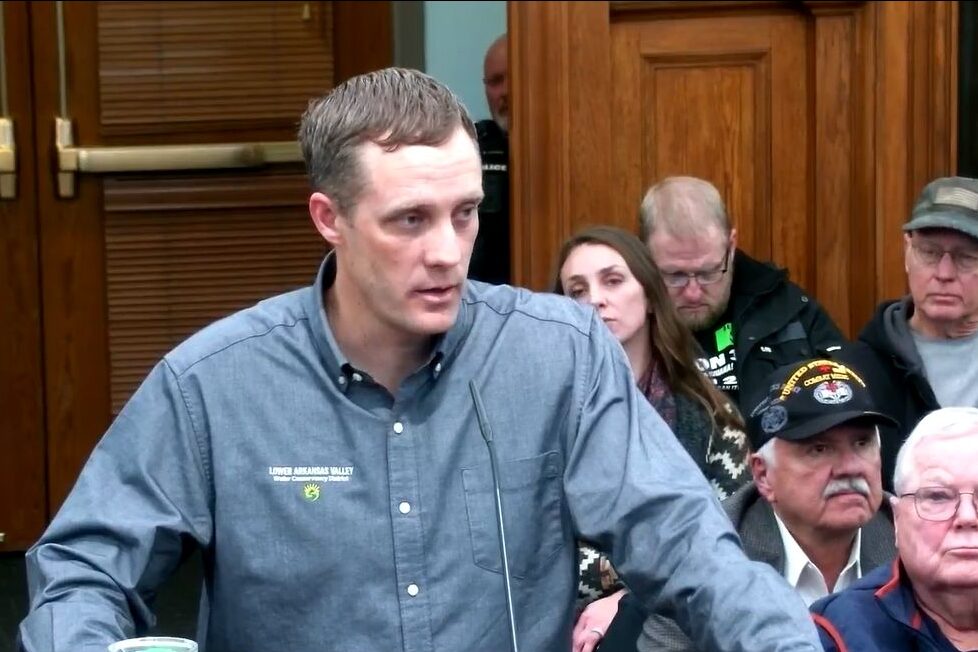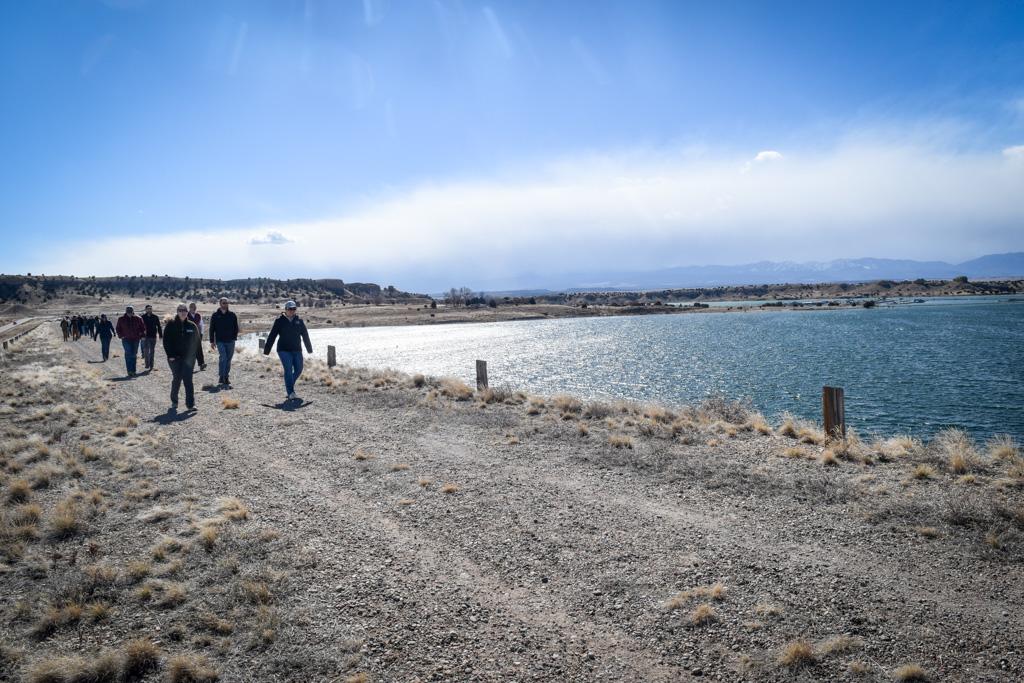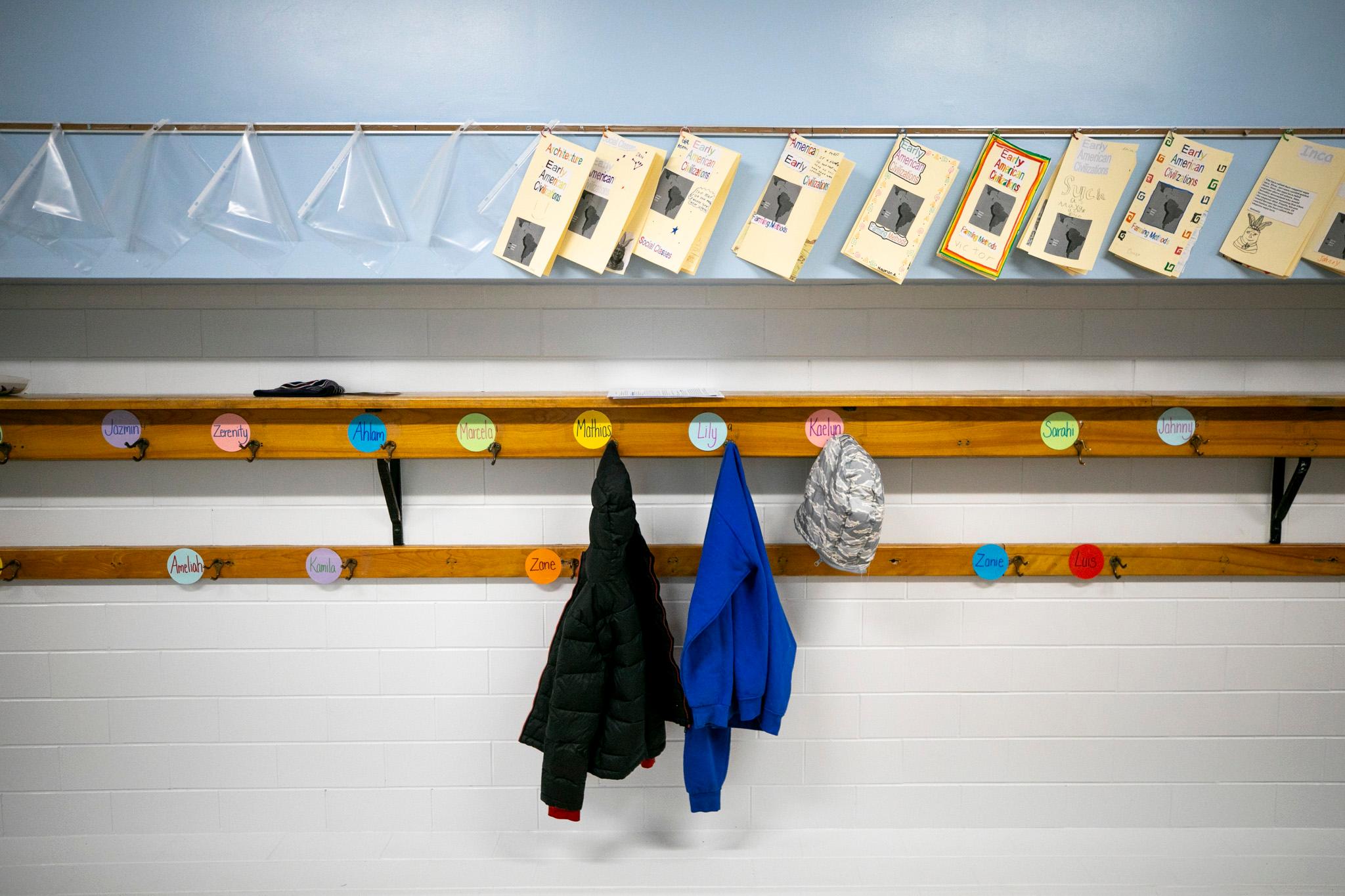
The boundaries of Colorado Springs are set to grow again, now that the 1,900-acre Karman Line Annexation southeast of the city near Schreiver Space Force Base has gained final approval from city council.
The so-called flagpole annexation connects most of the additional acreage to the city via a long thin strip of land along Bradley Road. The proposed development could eventually lead to the construction of about 6,500 new homes as well as commercial and other mixed uses.
Many city residents spoke out against the proposal during the public hearing and comment periods, expressing concerns about the environment, emergency response times and more.
Also present were farmers from the Lower Arkansas River Valley. They were on hand to ask the council to turn down the proposal, and spoke on issues of water loss due to drought and transfers to municipalities like Colorado Springs. It's a practice commonly known as "buy and dry," and it used to be more commonplace.
Colorado Springs Utilities has, in the last few years, implemented a so-called water sharing program with farmers, among other endeavors. The program trades more efficient agricultural sprinklers paid for by the city utility for the rights to the water saved.
But long time farmer and agricultural research scientist Mike Bartolo of Rocky Ford told council, which is also the Colorado Springs Utilities board, that it's misleading.
“It might've given you a false sense that you have an ample water supply,” he said, “and what you are doing to acquire more water in the valley is nowhere near the atrocities that were committed in the past."
But it's "ultimately false," he said. First, he said to call the Colorado Springs Utilities program a water sharing program is “misleading and disingenuous” and “to say it's a win-win situation, that is just plain wrong.”
Bartolo said all water users are facing shortfalls. “There is no magical crop that is going to free up water so you can get extra water …You (Colorado Springs) ran out of your moral water supply decades ago.”
Councillor David Lienweber noted that more than 80 percent of the state’s total water usage goes to agriculture and asked why more farmers aren’t moving away from flood irrigation and adopting water conservation practices like drip irrigation.
“You can't go and tell me that you're a conservationist if you think flooding the field is an appropriate way to use a resource,” he said. “I'd like to see more cooperative opportunities of investment in trying to use the water that we have more efficiently.”
But Lower Arkansas Valley Water Conservancy District General Manager Jack Goble said drip irrigation–which is a more efficient system– is very expensive and typically only makes sense for certain high value crops. Goble also reminded the council of the interstate compact that governs how much water Kansas is entitled to from the Arkansas River.
“It just doesn't pencil out and doesn't make sense financially with regard to water quantity,” he said. He added there are efforts to conserve, but water law doesn’t incentivize water efficiency in many situations.
Bartolo, Goble and several other farmers also spoke about water quality problems they said are caused by transfers that move water north from Pueblo Reservoir and elsewhere upstream to urban areas. Some of that water comes from the Colorado River.
But the transfers, they said, mean there’s less fresh water to mix with stormwater, runoff and other discharge that flows intoFountain Creek from Colorado Springs and beyond. Fountain Creek is a tributary of the Arkansas River. They said that leads to higher levels of salt and other contaminants in their irrigation water.
Lisa Barbato of Colorado Springs Utilities said she understands those concerns and said the agency is participating in a regional resource planning group to help mitigate the risk.
Babato oversees systems planning and projects.
"There are many different ways that we're going to be meeting the water needs of our community. It's not just agricultural transfers from the Lower Arkansas basin,” she said.
That includes other measures like conservation, potable water reuse, and increasing storage capacity, Barbato said. Additionally, any new annexations must meet the requirements of a water service extension ordinance approved by council last year. It requires the utility to keep its water supply at 128 percent of demand.
“We do believe there to be some win-wins,” for farmers and for the city, she said. “As we look at annexations, they do not change how we plan for our future water needs, but they do increase the water that we do need.”
Barbato also said the water sharing program is a "collaboration" with farmers and just one of the ways the Utility is working to meet demand.
“We do not want to go down there and have injury to their farming operations and ultimately into Kansas. So we are working very hard and at the table in that area,” she said. But, she added, it is a slow process.
“Colorado Springs Utilities has taken steps in the right direction to do better, even if in my opinion, your PR departments may have oversold some of those changes," Goble said. He said he sees Utilities staff has the very difficult responsibility of finding and acquiring more water.
Councillor Yolanda Avila, who represents southeast Colorado Springs, spoke about how her district needs more housing and better development plans, like the Karman Line Annexation represents. Yet, she said, she was moved by the farmers’ arguments.
“It's not black and white and it might be dark gray and medium gray and light gray. It is a struggle,” to make a decision, she said. “Most of the decisions that I attempt to make on council are. I really am weighing everything.”
Ultimately the annexation was approved in a 7 to 2 vote, with councillors Nancy Henjum and Dave Donelson in opposition.
- How water in Southern Colorado’s rivers gets divvied up before crossing state lines
- Controversial annexation plan near Schriever Air Force Base gets initial approval from Colorado Springs City Council
- Colorado Springs Utilities plans to share water with Eastern Plains farmers
- Controversial Amara annexation proposal moves closer to reality in Colorado Springs
- The Colorado Springs Utilities Board opposes Aurora's recent purchase of water rights in Otero County
- Controversial Colorado Springs water service extension ordinance moves forward








